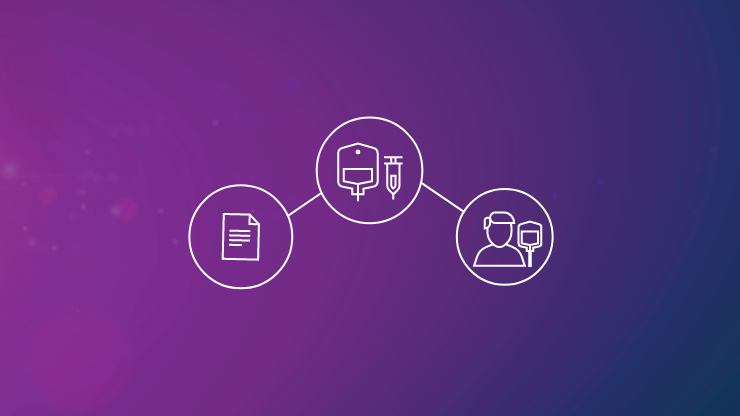Duty of Care is about individual wellbeing, welfare, compliance and good practice, and the importance of it is widely recognised within the healthcare system. Healthcare staff are committed to providing Duty of Care to patients, but employers have a similar ethical duty to provide care towards their employees.
Organisation leaders recognise that protecting the health of staff, in this instance, specifically protecting oncology staff, can benefit their organisation through reducing staff turnover, absenteeism, and absence through illness. It can also improve workforce morale when staff know they are being protected, and so feel valued.
Beyond the issues that healthcare organisations face in general with regards to protecting the health and wellbeing of staff, there are some specific areas of concern within oncology. We have identified three areas of risk to the health and safety of healthcare staff working within oncology. These are:

Exposure to hazardous drugs

Repetitive strain injury during the compounding process

Workplace stress
We will explore each of these areas in turn and suggest solutions to minimise them, helping you to ensure you are sufficiently protecting your staff within oncology.
Exposure to hazardous drugs
It is estimated that over 12.7 million healthcare professionals are exposed to hazardous drugs in Europe each year, such as cytotoxic drugs used in oncology.1Exposure to the chemicals used in cancer treatment can occur through skin contact, skin absorption, inhalation, ingestion and needle stick injuries during activities such as during drug preparation, transport, administration, waste disposal, and cleaning spills.2
The risks from exposure to hazardous drug can be severe and result in a wide range of symptoms, such as skin reactions, nausea and vomiting, hair loss, organ damage, reproductive problems and increased rates of cancer.2Added to this, new drugs continue to come to market for which the long-term effects of exposure to are often unknown.

Hospitals implement extensive safety measures to prevent healthcare workers from being exposed to hazardous drugs, such as personal protective equipment, biological safety cabinets, isolators, clean-rooms, protocols, guidelines, and education and training. However, despite these measures, exposure still occurs in many aseptic units, inpatient and outpatient departments, where oncology drugs are prepared and administered to patients.3
Reducing exposure
BD has solutions to use in addition to current safety measures to reduce exposure to hazardous drugs, and therefore add an extra layer of protection for healthcare staff.
The BD PhaSeal™ system is a closed system drug transfer device that has been shown to prevent exposure to hazardous drugs and protect oncology staff. This is due to being an airtight, leakproof system that mechanically prohibits the escape of drug or vapor concentrations into the environment. The BD PhaSeal™ is a simple solution to help protect pharmacy staff, nurses and other healthcare workers who prepare, transport and administer the hazardous drugs used in cancer treatment. One study demonstrated a major reduction of over 93% in the contamination of the work environment when using the BD PhaSeal™ system for drug preparation compared to without it.4
Repetitive Strain Injury
Another issue healthcare workers need to be protected from is repetitive strain injury (RSI). Risk factors for RSI include repetitive motions, exertion of high or prolonged muscular forces, and a fast-paced work environment with insufficient rest or recovery time during work.5 RSI can lead to a decrease in productivity, the requirement for medical treatment, time off, and even disability5. One area where healthcare workers are susceptible to RSI is during the compounding of the drugs used in cancer treatment.
Reducing the risk of RSI during compounding
Many hospitals will have preventative measures in place to reduce the risk of RSI during compounding, such as standard operating procedures, training, and assessments to ensure correct technique, and adequate breaks during shifts to enable rest and recovery. However BD offers a simple solution in addition to these to help protect staff during compounding.
BD’s Facilimix™ can help reduce RSI caused by the repetition of motions needed to exert pressure or force, such as the mixing of viscous drugs during compounding. It achieves this without compromising patient safety, or the efficiency of the compounding process. Facilimix™ is also compatible with closed system transfer devices, helping to protect oncology staff from leaks and contamination.6
Workplace stress
Healthcare professionals are often put under pressure. But when that pressure results in a situation of too many demands and not enough resources to meet them, pressure can become stress. Stress contributes to high error rate, poor quality of work, high staff turnover, absenteeism, decreased employee performance, and decreased organisational performance. This is due to health problems such as anxiety, emotional disorder, work life imbalance, depression, and other ailments such as frequent headache, obesity and even cardiac arrest.7,8
Stress in oncology staff is a significant issue that has been explored widely in research.9Oncology staff don’t just have to deal with a high, challenging workload, but also the emotional demands of working with cancer patients and their families. All this can cause physical and mental exhaustion.7Looking for ways to make their work less stressful is essential.
Reducing workplace stress through improving processes
One solution to protect oncology staff from stress is to improve processes along the oncology treatment pathway. Making the cancer treatment pathway more efficient can help reduce the burden of a heavy workload. Using automation and technology to manage complex processes along the cancer treatment pathway can help reduce errors, as well as alleviate the pressure on staff to identify errors manually
With BD, it is possible to create streamlined, connected workflows to help improve efficiency and minimise safety failures along the cancer treatment pathway, and BD Cato™ is an example of this.
BD Cato™ is an integrated, automated* software solution that provides support through all stages of intravenous chemotherapy prescribing, preparation and administration.
- BD Cato™ Prescribe** supports the physician in the prescribing of oncology treatment plans, such as by performing automatic dose calculations and alerting the physician if the dose is outside the recommended limits. This support helps reduce errors during the prescribing of often complex treatment regimens within oncology.
- BD Cato™ Pharmacy supports the pharmacy team in the compounding of oncology medication. Along with the use of barcode scanners, gravimetric scales and cameras, the compounding software guides users through the correct preparation of the drug, whilst reducing the need for manual checks. This therefore reduces the pressure on staff to spot errors visually.
- BD Cato™ ReadyMed is a simple and intuitive barcode technology documentation, checking and tracking program that supports the nurses in ensuring they fulfil the 5 rights of medication administration. It reduces the pressure on nurses to spot errors during the checking process, and by improving documentation efficiency, frees up nurse time.
In addition to these, the BD Bodyguard™ Duo is an infusion pump that can help simplify the infusion of complex therapies10. With two independent infusion channels, a single simplified user interface and true concurrent flow capability, the BD BodyGuard™ Duo can help reduce administration errors whilst also freeing up nurse time.
Summary
Ensuring the protection of oncology staff is, and will continue to be, of high importance to healthcare organisation leaders. BD has a range of solutions that can be applied across the whole of the oncology pathway to maximise worker safety and wellbeing. By addressing and reducing the risks of staff exposure to hazardous drugs, RSI and occupational stress along the cancer treatment pathway, healthcare organisations can protect both their oncology staff, and their hospital’s reputation.
Unmistakably BD Oncology.

Board executive

Board executive
Contact us

